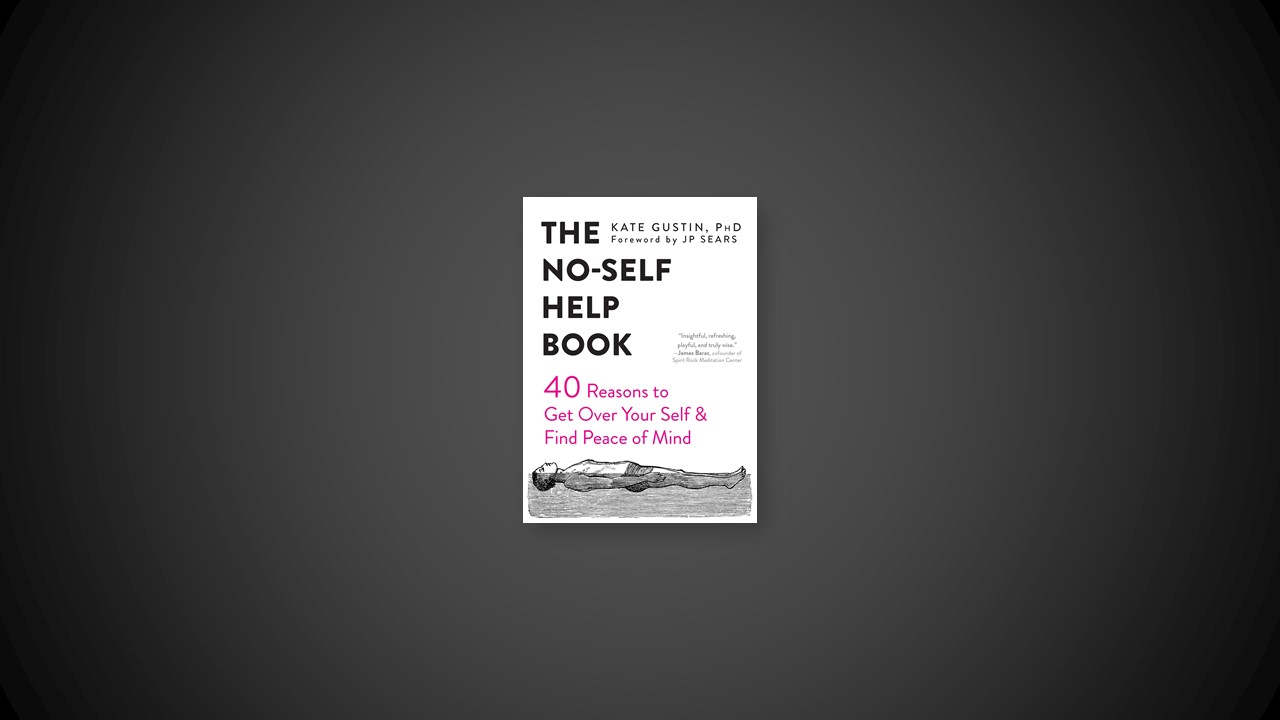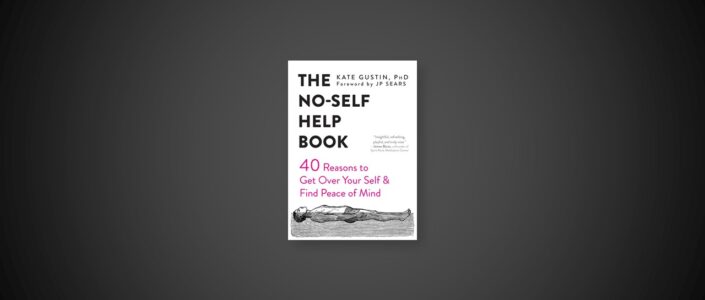The Imposter Self
According to modern neuroscience, the self is less a thing than it is a process. In the process of selfing, the mind links together separate moments of subjectivity to give us the impression that we are a coher-ent, enduring entity.
When we think about ourselves, we activate a self-representation in the brain, a feeling of “me.” But just because we have a feeling of
“me” in the mind does not mean that a real self exists separate from the realm of thought. For example, we can hold a compelling image of a superhero in our minds without it pertaining to anything real outside our imagination. Thinking about Superman does not make him exist. When we’re not explicitly thinking about ourselves, our sense of self vanishes and our mind-body continues to function just as well without it. The self, like Superman, is a mental creation, a story.
Despite our ego’s posturing, no solid self actually lies within us.
The Dictator Self
The self tends to direct our mental and emotional processes like a dictator. The selfing function (the “I” or “me” commentator) often takes unilateral control of decision making and bosses the mind-body around.
How?
Just consider a decision you have to make—something simple like whether to eat dessert tonight. As the self debates whether to end dinner with the apple tart, it prioritizes particular emotions and reflections in its thought process. On the one hand, the self may be swayed by fears associated with increased caloric intake and body image, for instance. On the other hand, the self may be motivated to maximize its serving size, given that it got a smaller slice of cake yesterday than other people did. Whatever the content of the self-talk, the point here is that the inner commentator assumes authority over the final dessert decision.
The Self Seeks Esteem
Envision, if you will, a black hole. Imagine this black hole inside you.
It could be located in the middle of your brain, or perhaps deep within the gut, or in the heart area of your chest. Wherever it resides, it exerts a force that draws your past good deeds into its center.
All your successes, your strengths, and your positive qualities get pulled in: your school lap-a-thon certificate, your volunteering hours, your guitar recital, your patience with your little sister, your advanced credentials, the promotion you got at work, your recycling. But no matter how large the assortment of accolades, the black maw attracts more. The force of its voracious intake increases exponentially with the amount of personal accomplishment it consumes.
This imploding star is self-esteem, or, more precisely, the seeking of self-esteem. At the center lies a phantom metaphor, a bottomless singularity that threatens to eat you out of house and home. In other words, self-esteem is elusive; it’s the promise of a certain feeling toward oneself that can never be reached. And the striving to reach it becomes quite costly, with the self directing vast quantities of time and energy into pursuing it.
The Self Wants
Selves want. They want things like cars and money and furni-ture. They want recognition and entertainment. They want comfort and pleasure. They want others to change. They want to be loved.
The target of the wanting may vary, but the wanting does not. It hums in the background like a grating lawnmower on a Saturday morning, disrupting everyone’s peace of mind.
Perpetual wanting is natural, even inevitable, given the self’s essentially empty core. To compensate, the self attempts to accumulate what it can: material items, pleasurable mood states, reassurance, and security. Unfortunately, each desire met is quickly followed by another desire unmet. Have you noticed this? It usually takes just hours, if not minutes, before the sense of wanting resurfaces and attaches to the next desired thing.
The Self Needs
The self tends to equate what it wants with what it needs. In doing so, it experiences a sense of imperativeness, even entitlement, in meeting these needs. The transition from wants to needs may be a subtle one, but the result—a self on a mission to honor and fulfill its needs—is far from subtle. Just visit a shopping mall on the day after Thanksgiving.
Certainly, needs do exist. As body-minds vulnerable to the demands of biology, we do need food, water, shelter. As primates who evolved in tribes, we do have social needs for attachment and connection. The human body-mind prioritizes such needs naturally, automatically seeking food if hungry, water if thirsty, shelter if cold: bodies take care of themselves.
But the self is not the body. It is an overlay, a narrative that has convinced us that it requires the same attention and care as if it were a human being in its own right.
The Self Whines
But why did the ice cream cone fal ? Because you were holding it to the side.
But why didn’t yours fal ? Because I was holding mine upright.
But why is my ice cream on the floor? Because it fell.
But why? It happens.
But yours didn’t fal . No, it didn’t.
Why not? I guess I was paying attention.
It’s not fair. You’re right.
The plaintive why can, thus, serve as a form of protest: a whining refusal to meet life on its own terms. When reality shows up in a way that conflicts with the self’s preferences, the self tries to squeeze out a rationale that will magically change circumstances more toward its liking. The self does not suffer helplessness gracefully. It will stub-bornly fold its arms, puff out its chest, and resist what is. Rather than accept the chocolate-chip puddle on the floor and proceed back into
the line for another scoop, the self will stand its ground and argue about the inherent unfairness of gravity.
Answering the whys, to the extent they can be answered, comprises only part of the healing. Whys are oriented toward the past. At some point, one must begin pivoting away from the why toward the present, toward the what and the how: What does that mean for me now? How do I best go forward?
The Self Is Picky
The self makes its way through life sorting through what it likes and dislikes, what it approves of and disapproves of. For the self, pickiness is an approach that pumps it up, makes it arbitrator of what is worth-while and what is not.
Being discriminating grants the self a sense of stature and control, especially in an affluent, consumer-based culture that caters to individual preferences.
Pickiness becomes problematic, however, when the self projects its selectivity toward other people. At heart, the self simply wants to be accepted. And yet it ironically places countless conditions upon its acceptance of others:
He must be tal er than me and in good health.
She must be multilingual and cultured.
The self’s exacting criteria can be counterproductive. Its picky rule-outs may prevent most people from entering its inner sphere.
The Self Strikes Out
Ever notice that you lash out in a manner that’s out of proportion to the situation at hand? Or that you strike out more forcefully toward those you hold dearest?
Each person comes equipped with a hardwired emotional repertoire—a range of feelings that provide important information about the care of the body-mind. Emotions may tell us, for example, when comfort is needed, or when protection should be sought. Anger constitutes an essential part of this evolutionary survival kit, a signaling from within that appropriate self-defense or self-advocacy may be called for. Anger can mobilize us to respond to potential mistreat-ment or harm and, ideally, to safely prevent it altogether.
The self, however, has been known to strike out toward others unnecessarily. Evolutionarily speaking, getting angry at the customer service representative on the line, after thirty minutes of failing to navigate the company’s phone tree, does not serve a protective purpose. And the school bully who threatens violence after not getting his way on the playground is not trying to prevent harm but rather to instigate it.
The Self Steals Credit
One can’t even cross the street, carry on a conversation, or tend to one’s hygiene without the self taking credit for it. Fancying itself the agent of all action, the self refuses to accept that the body-mind could navigate effectively on its own across the seas of relationship, livelihood, and self-care without its self-conscious deliberation. The self would have us believe that, without its input, we would devolve into couch-potato-hood.
And yet, our direct experience shows that there is an intelligence that directs our actions with or without engagement of the self’s narrative. In other words, the self does not need to announce “I am thirsty” in order for the body-mind to secure a drink. We do not require the self’s permission or commentary regarding the restroom to make appropriate use of it. The self-referencing circuitry of the brain does not control the reins of the horse.
The self would never know this because, first, it rarely stops its narrative long enough to find out what takes place without it. Second, it does not want to acknowledge an agency other than its own. It would be disempowering to discover that a flow of movement, an intercourse with life, happens naturally without its consent.


